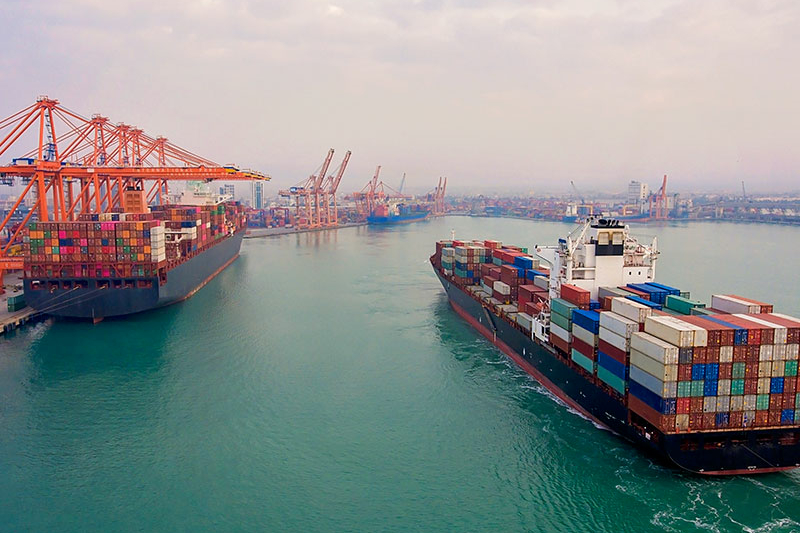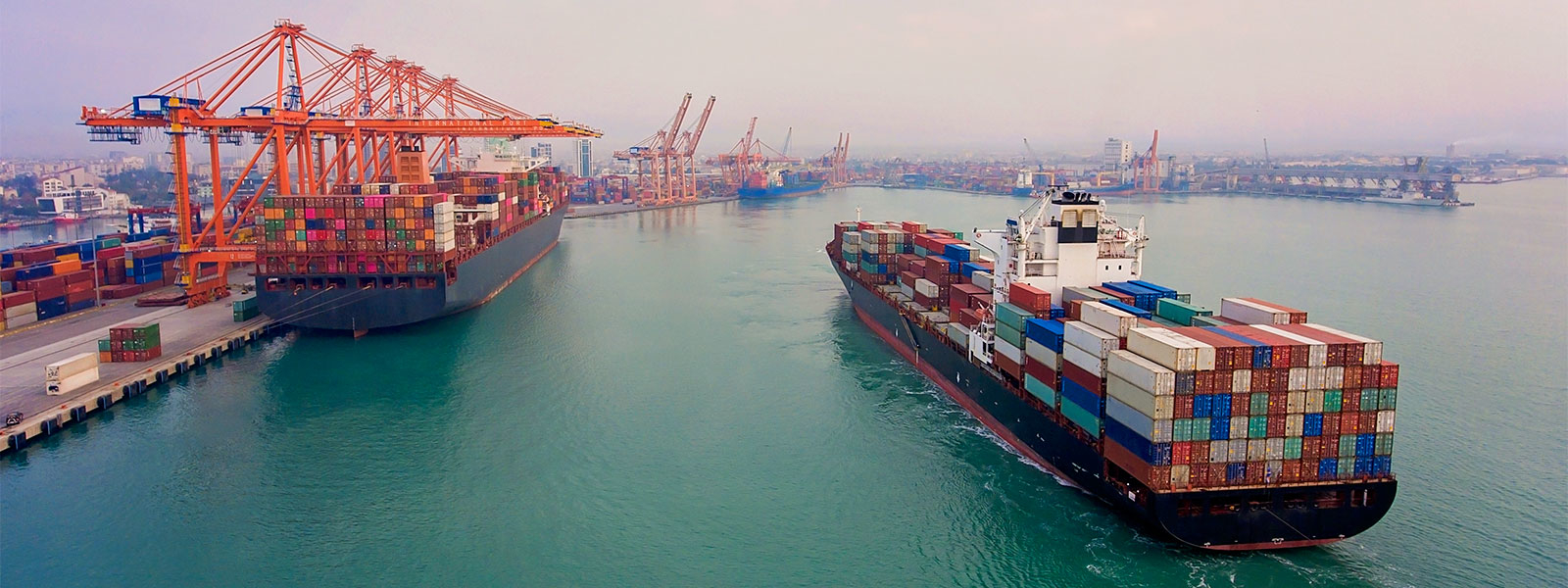Europe takes a tougher approach to technology mergers
Taiwanese companies should keep Europe in mind when planning new deals

While we may be weathering the COVID-19 pandemic, the geopolitical fractures and economic decoupling that reshaped the global business landscape in 2020 have continued to accelerate throughout 2021. It might be too early to say the global markets are "back to business," but there are strong signs that we are on the right track to return to normalcy.
In the Americas, the transactional markets are booming, particularly for M&A and capital markets transactions. The expected passing of a new significant infrastructure bill by the US Biden Administration is expected to create significant infrastructure spending and investment opportunities in the years ahead. Within Europe, the Middle East and Africa (EMEA), we see the rapid emergence of environmental, social and governance (ESG) thematic investments, as well as a renewed focus on technology and healthcare transactions. Private equity (PE) and venture capital (VC) investments into Africa, often viewed as the next growth frontier, have also increased. In Asia-Pacific, Sino-US decoupling and the emergence of special purpose acquisition companies (SPACs) have given rise to significant changes in traditional fundraising avenues and exits.
Moreover, these trends are taking place amid the continuing uncertainties of the world’s varying responses to the COVID-19 pandemic and complex, new global regulatory developments involving trade, sanctions and other geopolitical business issues. For companies and investors based in Taiwan, it can be a challenge to navigate these global risks while seeking out the many growth opportunities that still exist.
We hope this year's report for Taiwanese businesses and investors provides helpful guidance amid a time of historic global transitions.
We begin by reviewing European competition authorities’ heightened focus on the technology sector and tough approach to technology mergers. Similarly, Taiwanese companies doing business in the US may feel the impact as US antitrust policy increasingly targets the technology industry.
Taiwanese businesses and investors should prepare for foreign direct investment (FDI) regulatory scrutiny early in their deal processes, particularly in cross-border M&A transactions involving Europe, the US and other countries, as well as investments into "sensitive" sectors that increasingly include technology, healthcare and other data-driven industries.
Due to the ongoing regulatory changes, global and regional businesses involved in US-Sino trade should balance the competing restrictions while maintaining a cautious approach.
Taiwanese companies exposed to the US market need to understand the rise in US disputes over standard essential patents (SEPs) and how US juries will likely resolve related damages.
We will also discuss how the SPAC and de-SPAC process can help high-potential target companies gain liquidity and the particular opportunities this presents for Taiwanese companies.
Finally, our update on Asia-Pacific financing trends presents insights into areas of financing optimism and robust deal activity throughout the capital markets.
We look forward to discussing these and other issues with you.
Taiwanese companies should keep Europe in mind when planning new deals

By Eileen Cole and Anna Kertesz
Taiwanese companies could feel the impact of the current push for wide-scale change

By Tilman Kuhn and Karalyn Mildorf
Expanded reviews and more resources: The view from 2021

By Cristina Brayton-Lewis and Bingna Guo
Navigating complexities under a new US administration

Taiwanese businesses should watch for continued assertions on 5G, IoT

By Steven Sha and Daniel Yeh
Current market options for Taiwanese companies seeking liquidity

By Charles McConnell and Manley Leung
What's next for Taiwanese banks and businesses?


Navigating complexities under a new US administration
*Katherine Schroeder contributed to the creation of this article.
Companies active in mainland China and the United States watched with anticipation to see whether the new US Biden administration would depart from aggressive policy positions toward mainland China taken by the previous Trump administration. However, despite embracing more cautious rhetoric, the Biden administration has signaled that it intends to continue several trade policies toward mainland China established during the Trump administration. In response, mainland China has pushed through several laws to counteract the impact of US trade policies.
Despite hopes that the Biden administration might change direction on US-Sino trade policy, actions taken in 2021 have largely continued—and in some cases, escalated—the prior administration's approach to mainland China.
Although the Biden administration amended or revoked three Trump administration executive orders (EOs) relating to mainland China—namely, EOs targeting "Communist Military Companies," WeChat and TikTok—it immediately replaced them with new EOs covering the same issues. A new order replaced and clarified the previous EO addressing "Communist Military Companies" and added additional prohibitions on US involvement in developing Chinese surveillance technology.1 Similarly, a new EO replaced the WeChat and TikTok EOs that were the subject of legal challenges in US courts.2 The new EO reaffirmed the national emergency and determination by the Trump administration that mainland China is a foreign adversary, and directed the Secretary of Commerce to recommend new measures to protect US information and communications technology and services by October 7, 2021.
The US Department of Commerce has continued to use entity list designations to advance its foreign policy objectives, engaging in several rounds of designations of Chinese entities in 2021. The justifications provided for the designations related to US national security and foreign policy concerns, including alleged participation in laser and surveillance programs, activities involving mainland China's military, and involvement with the Xinjiang region.3, 4
The US government has continued to impose sanctions on officials in Hong Kong, as recently as July 16, 2021.5 In addition to the sanctions, the US government issued a "Hong Kong Business Advisory" "to caution US businesses about emerging risks to their operations and activities in Hong Kong," although the advisory did not prohibit or restrict US entities from conducting any business involving Hong Kong.6
The Biden administration has continued to increase its pressure on trade controls relating to the Xinjiang. As noted above, the US Department of Commerce's Bureau of Industry and Security added 14 Chinese entities to its entity list related to activity in the Xinjiang region in July 2021.7 In addition to export control restrictions, the US also began to implement import controls for certain silicon products necessary for solar inputs produced in the Xinjiang region. The US Customs and Border Protection Agency maintains withhold release orders (WRO) against Chinese companies operating in the Xinjiang region, and added a WRO against Hoshine Silicon Industry in June 2021.8 A WRO effectively denies entry of targeted products into the US.
The Biden administration also re-issued the Trump administration's "Xinjiang Supply Chain Advisory" highlighting information on necessary due diligence for companies investing in the region.9 The updated advisory furnishes expanded guidance on due diligence strategies; addresses recent enforcement actions including visa requirements, sanctioned entities and WROs; specifically addresses risks to investors; and cautions US businesses and individuals to exit supply chains, ventures and/or investments connected to Xinjiang if mitigation is not possible—or face serious legal risks.
In addition to the measures above, the US has continued to take a firm stance on license applications to entity list parties, continuing the approach taken at the end of the last administration. In particular, the US has taken a firm stance against license applications that could supply Huawei with 5G (or near-5G) technologies, including components of such systems.
Further, US export controls now factor in as a key consideration in reviews of foreign direct investment by the Committee on Foreign Investment in the United States (CFIUS). Though CFIUS always considered export controls applicable to a US business, the question of export controls has become critical in determining whether filings may be mandatory under a relatively recent law, the Foreign Investment Risk Review Modernization Act (FIRRMA).
Mainland China has implemented its own trade control measures since 2021.10
Mainland China issued a blocking statute in January 2021, which provides a legal framework for the Chinese government to counter laws and regulations from other countries deemed to affect China's interests. For example, the statute requires Chinese companies to report any trade restrictions or sanctions, creating a system that informs the Chinese government about new economic regulations as soon as possible. In addition, the statute contains a provision stipulating that companies may be prohibited from complying with non-Chinese trade restrictions and may be subject to lawsuits if they do comply with these restrictions. Mainland China followed up on this statute with a June 2021 Anti-Foreign Sanctions Law that included provisions allowing the deportation of certain individuals doing business in mainland China as well as other countersanctions, such as visa restrictions and asset and transaction blocks within mainland China.11
Mainland China recently passed several cybersecurity and data privacy laws and regulations. Its Data Security Law, which focuses on data that is important to China's national security,12 will take effect in September 2021. In August 2021, the Standing Committee of the National People's Congress, the main legislative body in mainland China, passed the Personal Information Protection Law (PIPL)13 which will take effect November 1, 2021. The Data Security Law, the PIPL and the Cybersecurity Law (CSL) are all intended to establish a broad regulatory framework related to cybersecurity and data compliance in mainland China. Among other requirements, these laws set out rules governing data transfers outside of mainland China, data release requirements for companies operating in mainland China and penalties for violations.
A practical approach to managing competing restrictions
Due to the foregoing regulatory changes, businesses involved in US-Sino trade should continue to maintain a cautious approach.
Global and regional businesses should take all of these steps, while carefully considering their risk profiles and how best to balance the competing US-Sino trade restrictions well in advance before undertaking any transactions that could create costly future dilemmas.
1 See https://www.whitehouse.gov/briefing-room/presidential-actions/2021/06/03/executive-order-on-addressing-the-threat-from-securities-investments-that-finance-certain-companies-of-the-peoples-republic-of-china/.
2 See https://www.whitehouse.gov/briefing-room/presidential-actions/2021/06/09/executive-order-on-protecting-americans-sensitive-data-from-foreign-adversaries/.
3 See https://www.govinfo.gov/content/pkg/FR-2021-04-09/pdf/2021-07400.pdf.
4 See https://www.commerce.gov/news/press-releases/2021/07/commerce-department-adds-34-entities-entity-list-target-enablers-chinas.
5 See https://www.state.gov/marking-one-year-of-hong-kongs-national-security-law/.
6 See https://www.state.gov/issuance-of-a-hong-kong-business-advisory/.
7 See https://www.commerce.gov/news/press-releases/2021/07/commerce-department-adds-34-entities-entity-list-target-enablers-chinas.
8 See https://www.cbp.gov/trade/programs-administration/forced-labor/withhold-release-orders-and-findings.
9 See https://www.state.gov/xinjiang-supply-chain-business-advisory/.
10 See MOFCOM Order No. 1 of 2021 on Rules on Counteracting Unjustified Extra-territorial Application of Foreign Legislation and Other Measures.
11 See Anti-foreign Sanctions Law of the People's Republic of China.
12 See Data Security Law of the People's Republic of China.
13 See Personal Information Protection Law of the People's Republic of China.
White & Case means the international legal practice comprising White & Case LLP, a New York State registered limited liability partnership, White & Case LLP, a limited liability partnership incorporated under English law and all other affiliated partnerships, companies and entities.
This article is prepared for the general information of interested persons. It is not, and does not attempt to be, comprehensive in nature. Due to the general nature of its content, it should not be regarded as legal advice.
© 2021 White & Case LLP